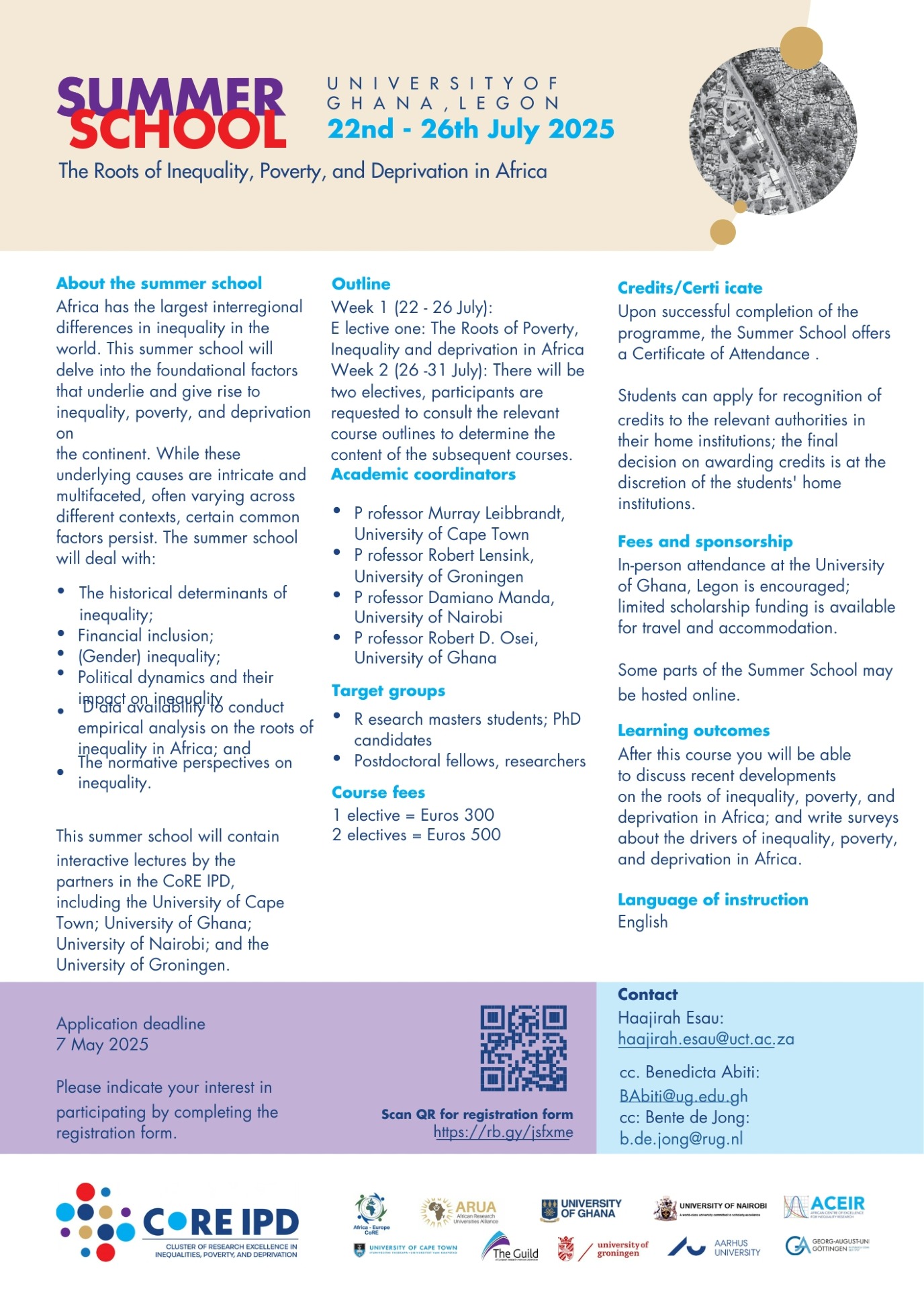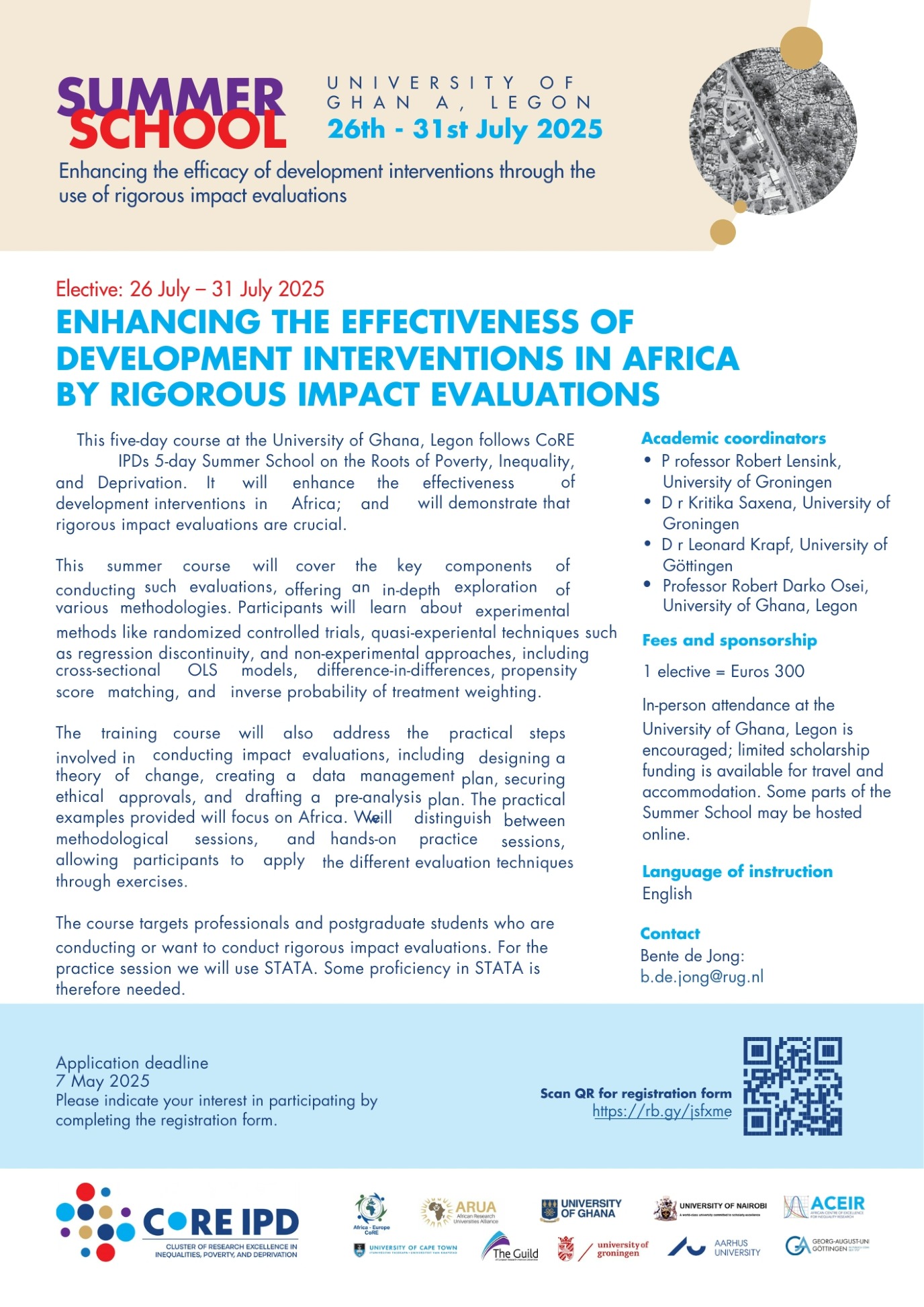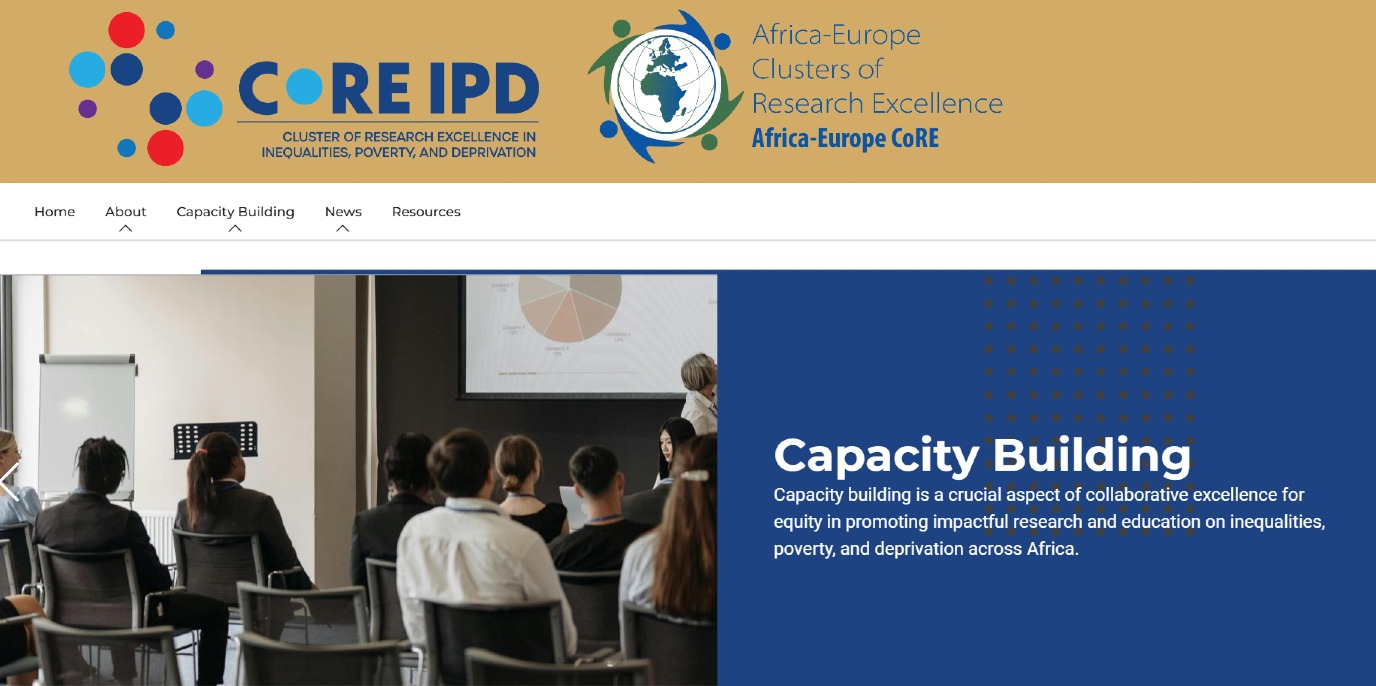Inequalities, Poverty, and Deprivation (CoRE IPD)
African and European universities have joined forces to explore the interconnected issues of inequality, poverty, and deprivation, collectively referred to as IPD.
The Cluster of Research Excellence on Inequalities, Poverty, and Deprivation (CoRE IPD) is one of the 17 research clusters initiated by the African Research Universities Alliance (ARUA) and The Guild of European Research-Intensive Universities (The Guild). Its mission is to pioneer a novel approach to fostering equitable collaboration and enhancing capacity in this critical field.
Professor Robert Lensink, from the Faculty of Economics and Business (FEB), will lead CoRE IPD in collaboration with Professor Murray Leibbrandt, the director of the African Centre of Excellence for Inequality Research (ACEIR) at the University of Cape Town, South Africa. Additional partners include the Universities of Aarhus, Ghana, Göttingen, and Nairobi.
Primary Focus and Objectives
The primary scientific challenge that CoRE IPD will tackle is the reduction of inequality to alleviate poverty and deprivation in Africa. The continent faces some of the most significant interregional disparities in inequality globally, with several Southern African countries ranking among the most unequal. This challenge is a common thread woven through nearly all the social development goals (SDGs).
CoRE IPD has delineated six interdisciplinary themes to guide its concentration. These themes encompass:
-
Unearthing the historical factors influencing inequality.
-
Investigating structural transformations, employment dynamics, and their impact on inequality.
-
Exploring agricultural development, food security, and nutrition, all in the context of inequality.
-
Examining the interplay of climate change, migration, social cohesion, and equity within societies.
-
Analyzing disparities in health access and outcomes.
-
Promoting financial inclusion while addressing issues of inequality.
In each of these themes, we will place specific emphasis on comprehending the unique circumstances of women and youth, as well as identifying pathways toward their sustainable futures.
Long Term Vision
What sets CoRE IPD apart is its enduring commitment to collaboration. We aspire to continue working together to bolster research and teaching capabilities. Our future plans include the establishment of joint Master's and Ph.D. programs and the provision of training opportunities for policymakers, civil society organizations, and businesses.
Notable Information
In Groningen, CoRE IPD will operate as a research project within the Development, Security and Justice theme of the Rudolf Agricola School for Sustainable Development. CoRE IPD also maintains close affiliations with themes like 'Future Prosperity' at FEB.
Summer Schools


Contact - Academic Lead
prof. dr. Robert Lensink (Faculty of Economics and Business)
-
tel. 050 36 33712
-
tel. 050 36 37068 (secretariat)
-
E-mail: b.w.lensink rug.nl
| Last modified: | 26 April 2025 10.02 a.m. |


